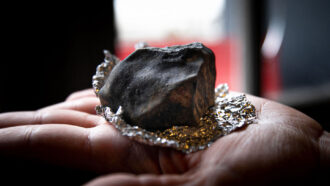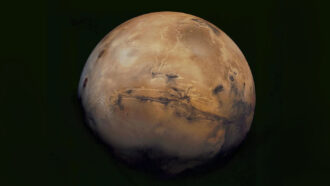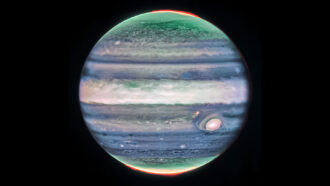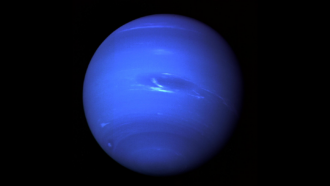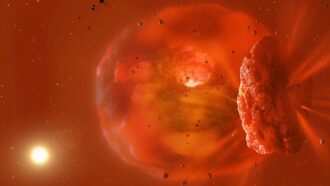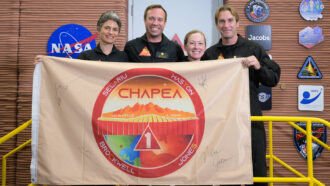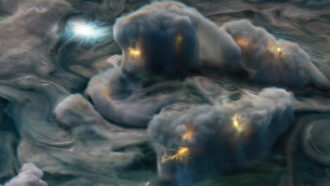A Darker, Warmer Red Planet
Mars, like Earth, may be experiencing climate change.
Our planet is getting warmer, and ice at the North and South Poles is melting. Global warming may be happening on Mars too.
When the sun shines on a planet, the planet’s surface reflects some of the sunlight back into space. Other sunlight gets absorbed and warms the planet. Light-colored surfaces, such as white ice caps, reflect more sunlight than dark surfaces do. By contrast, dark surfaces absorb more of the sun’s radiation, which makes them get hotter.
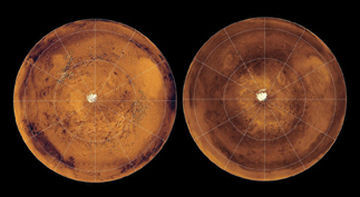 |
|
These pictures of the southern half of Mars show that the planet got darker between the late 1970s (left) and 2000 (right). At the center of each image, in white, is the ice cap at the planet’s south pole.
|
| U.S. Geological Survey |
Scientists who’ve compared pictures of Mars taken by satellites in the 1970s to images taken more recently have noticed that the Red Planet’s surface looks different than it used to. In some areas, the landscape looks much darker, while in others, it looks lighter. Overall, the surface of Mars—especially in the planet’s southern hemisphere—has grown darker over the past 30 years.
Most of those changes probably occurred because Martian winds blew away light-colored dust that had covered many regions. That exposed darker rocks that had been covered with dust.
The darkening of Mars has caused the planet to get warmer, a new study suggests. Scientists calculated how much more sunlight and heat Mars absorbs now. They compared that to how much it absorbed in the late 1970s. They estimate that the planet’s atmosphere is almost 1°C warmer, on average, than it was 30 years ago.
Some areas of Mars have warmed more than average. For example, the planet’s south pole may be 4°C warmer than it was in the late 1970s. That could explain why the ice cap at that pole has been melting recently, scientists say. Until now, they didn’t know why that was happening.
Like climate change on Earth, the change in Mars’ climate isn’t due to increases in the sun’s radiation, scientists say.—C. Gramling
Going Deeper:
Perkins, Sid. 2007. No escape: There’s global warming on Mars too. Science News 171(April 7):214. Available at http://sciencenews.org/articles/20070407/fob7.asp .
Sohn, Emily. 2005. Evidence of a wet Mars. Science News for Kids (Dec. 14) http://sciencenewsforkids.org/articles/20051214/Note2.asp .
